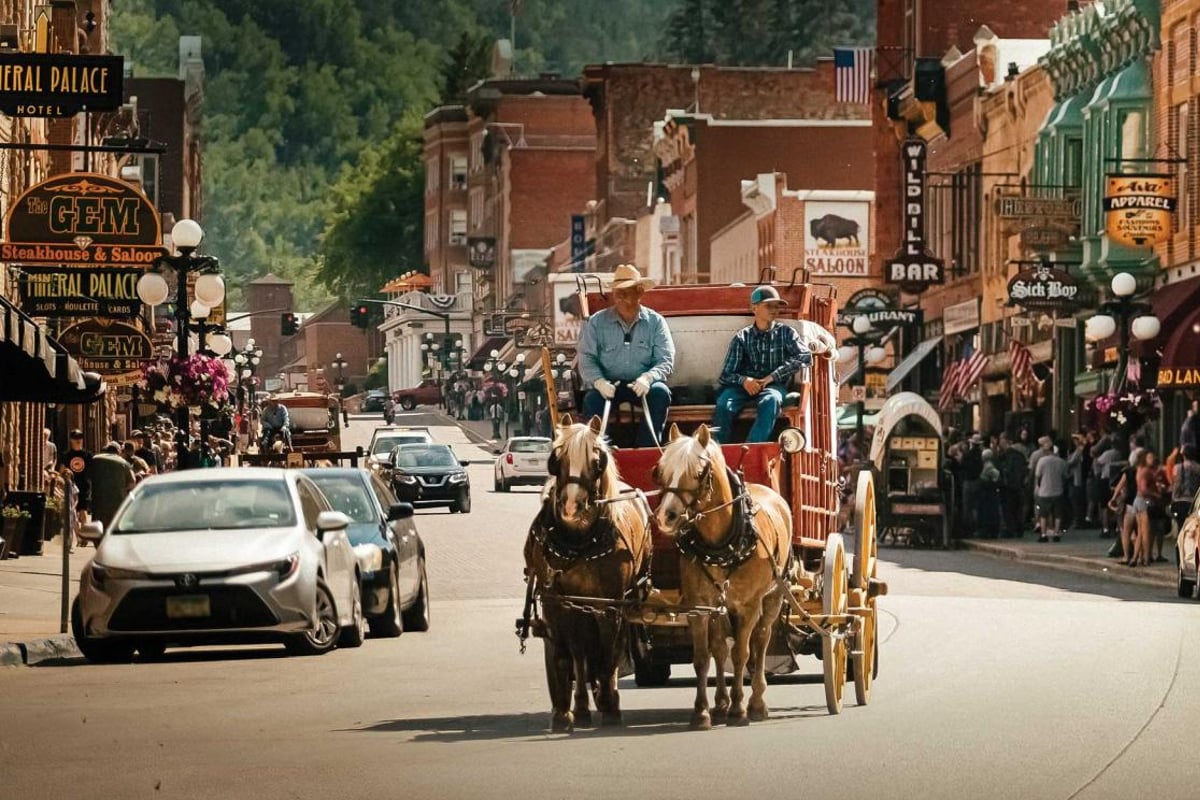Deadwood casinos will soon need to tell South Dakota how they prevent access to those wishing to exclude themselves from gambling.


The South Dakota Commission on Gaming regulates Deadwood casinos. The historic gold rush mining town is known for its idyllic Main Street gaming parlors set below the Black Hills mountain range in the western part of the state.
Deadwood seems stuck in the past, and that’s something many in the area seek to preserve. But when it comes to gambling, state officials say it’s time to do more to protect players and bring the industry into the present times.
The agency that regulates gambling operations in the town where Wild Bill Hickok was shot dead in the back of the head by Jack McCall while playing poker holding a pair of aces and eights — now famously known as the “dead man’s hand” — is requiring that the casino parlors develop and present problem gambling safeguards. The Gaming Commission this week adopted new protocols that each casino must incorporate. They will need to maintain a self-exclusion list of patrons who wish to be barred from gambling.
Long Overdue
Deadwood is certainly a rarity, a legal commercial gaming market without a government-instituted self-exclusion program.
Of the 33 states that permit commercial gambling, only five do not have a statewide self-exclusion program. Along with South Dakota, the others are Arkansas, Colorado, Nevada, and Oklahoma.
In most of the states that do have state-governed self-exclusion programs, an individual can notify a casino that they wish to ban themselves from gambling for a certain period of time. The self-exclusion lists are monitored by a state agency and updated regularly.
Unlike casino black lists where an individual’s actions result in their involuntary ban, the self-exclusion rolodexes are predominantly kept confidential among the casino operators and the state and not made public.
South Dakota gaming regulators are not looking to implement such a statewide self-exclusion program, as commercial gambling is only permitted in Deadwood. Instead, the state is only requiring that each casino regularly submit names of individuals who have asked to be banned. The Gaming Commission plans to administer the list and make it available to each of Deadwood’s 18 casinos.
Regulatory Failures
Deadwood casinos recently began adding sports betting to their Main Street establishments. That’s after South Dakotans passed a ballot referendum in 2020 to allow sportsbooks to operate in the popular tourist town.
Sports betting has resulted in numerous regulatory infractions, most of which have involved oddsmakers accepting prohibited bets. One example is taking bets on college sports involving state-based schools like South Dakota State University. South Dakota’s sports betting law excludes college games hosted in the state or involving state colleges.
The Gaming Commission wants to make sure a problem gambler who might be betting too much on sports has the ability to ban themselves from the industry. The state says each casino must do everything in its power to make sure someone who has sought to exclude themselves from gambling is not given access to sportsbooks, slots machines, or table games.
The post Deadwood Casino Regulator Adopts ‘Patron Protection’ Self-Exclusion Policy appeared first on Casino.org.
